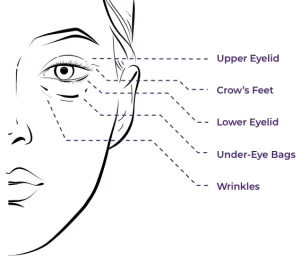We all know that a regular checkup at the doctor’s office is important. How often should we go? What should we expect to happen during a wellness exam? And what are some other ways you can stay healthy and spot any problems early on if you don’t have access to medical care? In this article, I’ll answer these questions and more.
Annual checkup.
Annual physicals are important for your overall health. They help you stay healthy and spot problems early, which can be easier to treat when they’re small. Annual physicals also allow your doctor (and you) to check on how well you’re doing at controlling risk factors for chronic conditions such as high blood pressure, diabetes and high cholesterol.
If there is a problem with any of these areas, it’s important that we work together to correct it before it becomes a serious issue or gets worse over time.
Immunizations and booster shots.
- Immunizations are an important part of wellness care. They help protect you and your family from serious, potentially deadly diseases like measles, mumps, chicken pox, diphtheria and other infections.
- You should receive recommended immunizations on a regular schedule as part of a wellness checkup. How often depends on the type of vaccine and your age, but most children need at least three doses of each vaccine before entering kindergarten or first grade (this schedule is called the “childhood immunization schedule”).
- If you don’t get your recommended vaccines as scheduled or decline any shots for personal reasons—such as religious beliefs or allergies—you will not be able to attend preschool or school unless you submit an exemption form signed by a parent or guardian stating that he/she knows about potential risks associated with non-vaccination status (schools can legally require proof).
- The best way to find out if you need additional vaccinations is by talking with your doctor during one of their routine wellness exams; they’ll review what’s been done so far and advise which vaccines should be administered next based on current recommendations by CDC.
Eat a well-balanced diet to help promote good health.
Eating a well-balanced diet is important for promoting good health. A balanced diet provides you with all the nutrients that your body needs, such as vitamins and minerals. Your diet should include:
- A variety of foods from each food group: fruits, vegetables, grains (such as breads and cereals), proteins (such as meat), dairy products and fats or oils consumed in moderation.
- Plenty of fruits and vegetables – at least five servings per day (2 ½ cups or approximately 1 pound).
- Less than 2 000 mg sodium per day – about a teaspoon salt (sodium) daily if you are healthy; less if you have high blood pressure or kidney disease (1 000 mg sodium daily is recommended for most people).
- Avoid too much fat – about 30 percent of calories from fat including saturated fats found in animal products like meats, full-fat dairy foods like butter and cheese
Stay physically active.
Regular physical activity can help us maintain a healthy weight, manage stress, and reduce the risk of heart disease and stroke. It also helps control blood sugar levels in people with diabetes and improves bone health for everyone.
When it comes to physical activity, you should choose an option that fits your lifestyle. Even if you have never exercised before or think that you are out of shape, start slowly by walking more each day or doing some simple exercises at home or in the office. You can gradually increase the amount of time spent being physically active as you feel comfortable doing so. The important thing is that you do something! Some examples of activities include:
- brisk walking (at least 30 minutes a day)
- gardening
- water aerobics
Getting regular checkups can help you stay healthy and spot any problems as early as possible, but it is important to remember that there are also other things you can do for your health.
- Getting regular checkups can help you stay healthy and spot any problems as early as possible, but it is important to remember that there are also other things you can do for your health.
- Your doctor might recommend screenings for common illnesses or screenings for cancer.
- You should eat a well-balanced diet and get physical activity throughout the week.
- If you have a family history of heart disease, high blood pressure or diabetes, talk with your doctor about getting tested for these conditions when you visit the office.
Conclusion
Taking care of yourself is important for your health and well-being. Getting regular checkups can help you stay healthy and spot any problems as early as possible, but it is also important to remember that there are other things you can do for your health. Eating a well-balanced diet, getting physical activity every day, staying away from alcohol and drugs will increase your chances of living longer while reducing the risk of developing serious diseases like cancer or diabetes later in life.













